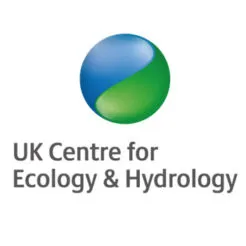Steve leads the AI and Machine Learning team working on projects across the centre themes, helping to define the nature-related AI problem and providing theoretical and code-based solutions. His work spans both AI application and theory and his current research interests include ecoacoustics, entropy-based eco-energetic modelling, AI methods for science discovery, multi-modal learning, few-shot learning and blind source separation.
Steve’s team works on projects across several LCNR themes, helping to define the nature-related AI problem and providing theoretical and code-based solutions. The team has recently completed a project with the Smith School Sustainable Finance Group that reports preliminary ideas of where AI can be used by financial organisations to monitor, attribute and predict investment impact on nature.
Prior to joining the Leverhulme Centre at its instigation, Steve was simultaneously a Departmental Research Fellow in machine learning in the Engineering Science Department, Oxford University, a Turing Fellow at the Alan Turing Institute and an EPSRC funded Researcher in Residence at the Satellite Applications Catapult. He led a research group in disaster response and environmental protection, working at the intersection of Bayesian and deep learning for scalable human-agent computation, intelligent crowd-sourced data labelling, interpretable machine learning, concept formation and heterogeneous data fusion.
He has over 25 years research and consultancy experience in machine learning, over 70 publications in the field and also patents in defence and commercial applications. His methods have been applied to a diverse range of problems including fault correction of NASA astrophysics data, multi-robot terrain mapping and anomaly detection, social network analysis, sensor modelling and big data economics. Steve has collaborated closely with disaster response organisations and has developed and deployed satellite imagery analysis tools to provide the UN, FEMA and NGOs with damage situation maps immediately following natural disasters. More recent collaborations have been with hydrologists here in the School of Geography on rainfall-runoff modelling in the UK, with hydro-meteorological commercial organisations on flood impact in India, with commercial maritime disaster prevention organisations on pollution source identification, with the Brazilian National Audit Office on tailings dam disaster prevention and illegal mining and with Save the Elephants on human-animal conflict.
Steve received his DPhil from the Department of Engineering Science, Oxford University, the Diploma in Computer Science and Part III of the Mathematics Tripos from Cambridge University and a BSc in Physics and Mathematics from the University of Liverpool.’
Related Toolkits

Artificial Intelligence
Developing AI algorithms to monitor, predict, simulate and contrast the baseline change in nature with the impact of interventions.

Remote Sensing
Working across pristine and human modified temperate and tropical forest ecosystems to understand and generate new knowledge about their functionality, health and resilience.
Related Projects

Healthy Ecosystem Restoration in Oxfordshire
Developing the local Oxfordshire landscape as a case-study, nature-recovery laboratory and community of practice.

Ecoacoustic Data Analytics
Advancing AI methods to determine ecosystem composition from acoustic recordings, distinguishing species, geophonic & anthropogenic sounds in soundscapes as well as flagging unusual or unanticipated sounds.

Robust ESG data for biodiversity
Financial institutions are increasingly aware of and interested in biodiversity- and nature- risks and opportunities, but such attempts have often been hindered by incomplete, incomparable and unreliable environment, social and governance (ESG) disclosure and scores.

Mining the efficacy of Nature-based solutions
AI researchers are working closely with the Nature-based Solutions Initiative to mine the evidence base for the effectiveness of nature-based solutions to climate change mitigation and adaptation

Mapping nature recovery at scale
Our AI team is developing state-of-the-art AI approaches to combine different sources of data, including drones, satellite, survey data and social media, that are robust to a range of environmental scenarios, data noise and model reliability.
Related Outputs
Assessing the Potential of AI for Spatially Sensitive Nature-Related Financial Risks
Evaluating and assessing nature-related risks for financial institutions is challenging due to the large volume of heterogeneous data available on nature and the complexity of investment value chains and the various components' relationship to nature.




